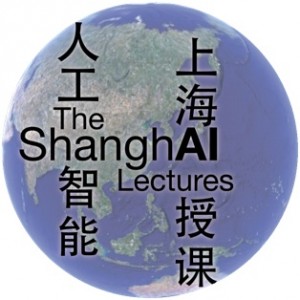
Robohub.org
ShanghAI Lectures 2013, Part 1 – Intelligence: Things can be seen differently

This week marks the launch of the ShanghAI Lectures 2013 Edition on Robohub — we will release a new lecture from this series every Monday until the series is complete. Please use the comments section below to send us your questions, and we will do our best to respond! You can learn more about the ShanghAI lectures here.
Lecture 1 – Intelligence: Things can be seen differently
If you are not interested in precisely predicting the motion of a handful of ‘anomalous’ stars (nowadays known as planets), then there is no reason to assume that the earth is not sitting at the center of the universe. Ptolemaic astronomy was good astronomy, after all. And if you were an astronomer of the XVI century you may have had good reason to think that ‘solving astronomy’ was simply a matter of adding the ‘right’ epicycles ;-). Many did. Why worry about just five stars that do not model correctly when there are several thousand stars that are perfectly predictable?
AI and Robotics have been very successful in the past fifty years, thanks to Google, IBM Watson, SIRI or Da Vinci, Opportunity, Bosto … oops Google again ;-). Yet something is still missing …
With all the due ‘caveats’, the first lecture of the 2013 ShanghAI series insinuates the doubt that we might be in a similar situation as regards AI and Robotics … that a paradigm change might be necessary in order to be able to build ‘real’ robots that are more similar to those dreamed by Hollywood, and that this new paradigm should be more similar to the massively multi-agent, self organizing, biological processes, exploiting ‘morphological computation’ than to the Good Old Fashioned top down ‘Cartesian’ paradigm, maybe with some machine learning in addition (modern ‘epicycles’?).
Are you intrigued? Do you wildly disagree? Check out the first lecture and learn about all the 2013 participants in the 2013 inaugural lecture:
About the ShanghAI Lectures
While in the classical approach “intelligence” was essentially viewed as information processing taking place in the brain, the more recent insight that interaction with the environment is of central importance is gaining acceptance. This has led to the metaphor of embodiment, i.e., that intelligence is always a property of an entire organism — an idea that has far-reaching implications and often leads to surprising insights, but which has not so far been widely exploited in industry practice.
The ShanghAI Lectures project aims to:
- Build a sustainable community of students and researchers in the area of Embodied Intelligence
- Make education and knowledge on cutting-edge scientific topics accessible to everyone
- Explore novel methods of knowledge transfer
- Overcome the complexity of a multi-cultural and interdisciplinary learning context
- Bring global teaching to a new level
These lectures about Natural and Artificial Intelligence have been held via videoconference at the University Carlos III of Madrid in Spain, the University of Zurich in Switzerland, Scuola Superiore Sant’Anna of Pisa, Italy, Humboldt University Berlin in Germany, University of Plymouth and University of Salford in the UK, and 10 other universities around the globe. Students from the participating universities are still working together on the exercises, using Webots by Cyberbotics, and Ludobots by the University of Vermont.
The lectures have also been streamed to allow remote participation to anybody.
The ShanghAI Lectures differ from ‘conventional’ MOOCs as they exploit telecommunication technology to build a global, distributed lecture hall that allows rich interaction rather than simply implementing the good old fashioned TV broadcasting model on a different medium. They also differ from other AI courses as they propose a new paradigm approach to embodied cognition (a.k.a. AI and Robotics). It is a kind of Copernican revolution with respect to GOFAI and its robotics application — and thus a research program for the coming decades.
This year I coordinated the lectures, with help from Prof. Rolf Pfeifer and Dr. Nathan Labhart at the University of Zurich . Rolf Pfeifer and I provided the context (introduction, moderation, and conclusion). As always, there were 2-3 invited guest lectures each week.
tags: Algorithm AI-Cognition, Embodied Cognition, Fabio Bonsignorio, ShanghAI Lectures 2013




